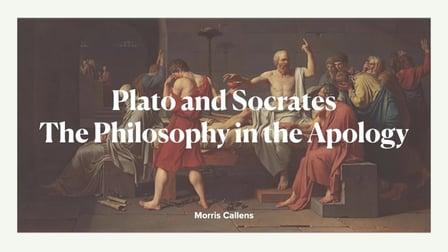MOOC List is learner-supported. When you buy through links on our site, we may earn an affiliate commission.

MOOC List is learner-supported. When you buy through links on our site, we may earn an affiliate commission.
The Apology is the only work of Plato which is not written in dialogue-form. It should be an oration of Socrates, defending himself in front of the 'down to earth' judges, but even if you think it is, then why does he tell the people to be quiet when he is speaking, not to say their comments out loud? The Apology is full of the secrets of his philosophy.
For the class project, check the work sheet in the attachments!
Let us first delve into a short question. What is the meaning of life to you? This can at first look be an overwhelming question, but I will specify it for you. What do you love so, that you could do/have it at every moment in your life? Think about it for a moment: do you know yourself? γνωθι σεαυτον? Is it the same as for Socrates? Rewatch part 7, the meaning of life and Socrate’s vision on life. What do you think about it? If you do not agree, why? Try to make a scheme for yourself: What is the thing you like most? and why? Then, try to create a text in which you explain why Socrates is wrong and you are right.
If you even want to be more creative, you could do this in a dialogue style. You are talking to Socrates and are having a philosophical conversation. Rewatch part 9, the elenchus method, and try to practice your skills with Socrates himself. You know his vision and you know what he will say, now it is your turn to turn his vision around. Use the worksheet down below.
What will happen after death? What do you think? Rewatch part 7, Socrate’s vision on death, and think about whether it is right or wrong, in your perspective. It is always fun to compare different views on death. Pythagoras had the idea of reincarnation, possibly in an animal (The reason why the pupil of his school did not eat animal flesh). Try for example Christianity, Shinto, Islam, Buddhism,…
Try to compare these in a short text and try to write, draw how your afterlife looks like and share it in the project section.
MOOC List is learner-supported. When you buy through links on our site, we may earn an affiliate commission.
MOOC List is learner-supported. When you buy through links on our site, we may earn an affiliate commission.
